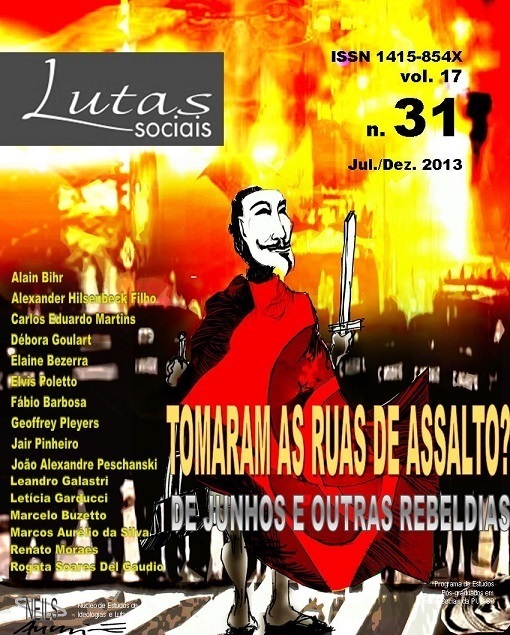The June protests and the purposeful alternative: a theoretical argument
DOI:
https://doi.org/10.23925/ls.v17i31.25728Keywords:
Protests, social movements, brazilian politics, sociological theory.Abstract
This piece presents a new typology to make sense of social movements, relying on the motivesbehind the struggle. From this perspective, we distinguish between groups that mobilizein reaction to an exogenous event, and those presenting purposeful alternatives. We furtherdevelop the notion of purposeful alternatives, which offers a means of addressing some recurrentdeficiencies of what is called the political-process literature on contentious politics: thecapacity to predict, the differentiation of groups and the objective definition of interests. Weargue that, despite its considerable influence, especially in the English-speaking world, politicalprocess theory is insufficient and incapable of accounting for social phenomena such as theJune 2013 protests in Brazil, in which heterogeneous actors mobilized around a proposal forinstitutional transformation, the “free pass.”Metrics
Metrics Loading ...
Downloads
Published
2013-12-31
How to Cite
Pechanski, J. A., & Moraes, R. (2013). The June protests and the purposeful alternative: a theoretical argument. Lutas Sociais, 17(31), 111–124. https://doi.org/10.23925/ls.v17i31.25728
Issue
Section
Dossier
License
Matérias assinadas não expressam necessariamente a posição do coletivo da revista e são de exclusiva responsabilidade do(a)s respectivo(a)s autore(a)s.
Ao enviar seus textos, o(a)s autore(a)s cedem seus direitos à Lutas Sociais, que autoriza, com prévia permissão do Comitê Editorial, a reprodução das publicações, desde que conste o crédito de referência.



